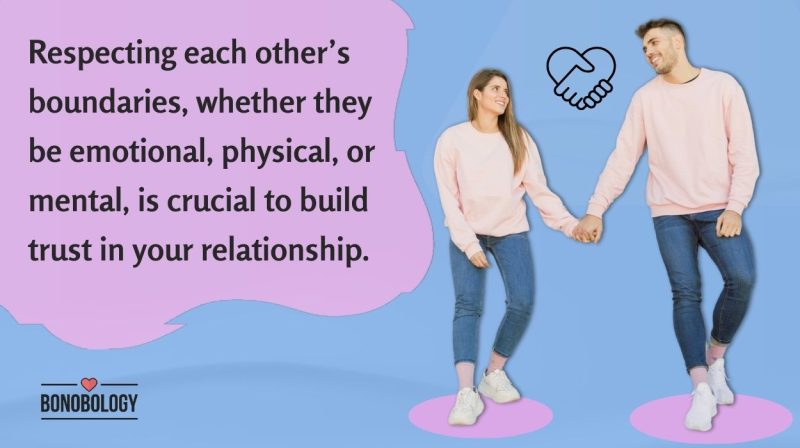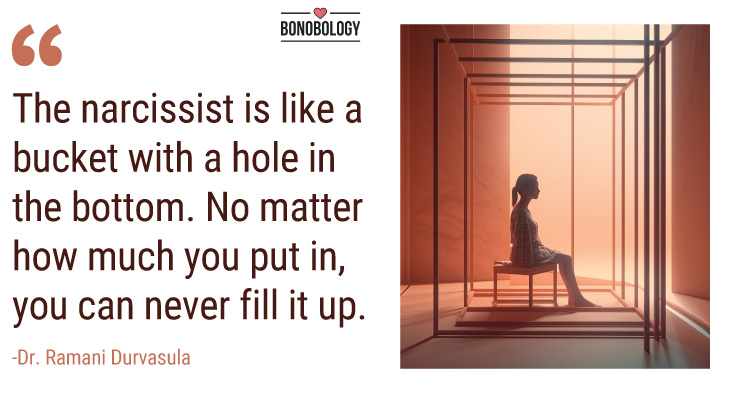What to do when your husband belittles you? He doesn’t involve you in any major decision-making. Your world revolves around his, but he barely needs your opinion/advice in his. You may not realize it but this is one of the classic examples of disrespect in a relationship. These are little ways in which even seemingly ‘good’ husbands make their wives feel small. Such dismissive behavior in relationships can trigger a deep need for approval and appreciation in the partner being slighted, turning into a never-ending loop of discontentment.
Now that you know about condescending behavior in a relationship, the next step is understanding what to do when your husband mocks you. Knowing the answer to this is very important if you are seeking an equal marriage, one in which you have a say, and are respected and valued for the person you are. So without any further pause, let’s dive right into it.
What Is Belittling Behavior In Relationships?
Table of Contents
Belittling is a form of verbal and emotional abuse. It’s the act of making people feel inferior/unworthy/not good enough. In literal terms, the word can be divided into two – ‘be’ and ‘little’. Essentially, it means you are subtly shown your place and it is always secondary to him.
A long-term study of 130 newlywed couples discovered that men who allow their wives to influence them have happier marriages and are less likely to divorce. The research, which offers deep insight into belittling others psychology, also points out:
- 65% of men increase negativity during an argument
- Men are more prone to stonewalling, and 85% of stonewallers were men
- If men don’t accept their partner’s influence, there is an 81% chance that a marriage will self-implode
Often when a husband humiliates his wife, it is not taken seriously, at least initially, as it is not seen to be overtly abusive. But belittlement can eventually create major rifts within a couple. He may call these ‘harmless’ but here are some examples of belittling in a relationship that can leave you feeling, “My husband brings me down”, and cause deep emotional trauma:
- Using gaslighting phrases
- Poking fun at you in public
- Taking away your power
- Resorting to sarcastic comments (instead of big fights/yelling/screaming)
- Patronizing statements
- Being unsupportive of what you do or say
- Comparing you with his mother/other women around you
- Telling you that your career goals are unrealistic and you don’t have it in you to achieve them
Related Reading: What To Do If You Think Your Husband Hates You?
Why does a husband belittle his wife?
Andrea, an artist from New Jersey, is completely broken, putting up with constant criticism in a relationship. She says, “My husband makes me feel worthless. Because my lifestyle is a bit more lavish than his, he calls me “your highness” sarcastically.
“He can’t beat me on the financial front, so he enjoys hurting me emotionally. Not only does my husband constantly correct me but also teases me for my fashion sense and abruptly cuts me off in conversations with other people. I don’t understand why my husband brings me down. Does he get a kick out of my humiliation? Why do I feel bad for stating my opinion?”
Andrea’s experience indicates that she’s either living with a narcissistic husband or one who is trying to hide some insecurity sitting deep inside him. It can even be a reflection of the fact that he was bullied as a child, at school, or at home by his own family. Now he is projecting the same trauma onto her. That’s what belittling others psychology boils down to.
If he has lived his whole life with a sense of ridicule, he would try everything to not let others see that anxious side of him, even if that means leaving his partner feeling unimportant in a relationship. Or he could be just another product of patriarchy, who:
- Can’t let his partner have a upper hand in the marriage
- Is threatened by his partner’s independence, financial stability, and free thinking
- Has to prove himself that he is the superior counterpart, by all means
Calling a guy out on his bad behavior can be an uphill battle. The question that arises, therefore, is: What to say to someone who belittles you? First and foremost, understand that it’s not acceptable or something that you should just overlook. And then take measures to put a halt to it. Here are some ways to do just that.
What To Do When Your Husband Belittles You
Sometimes dismissive behavior in relationships is passed off as casual jokes. Initially, you might also treat it as a joke and laugh it off. Many wives often even admit things such as “My husband makes side remarks” or “My husband embarrasses me”, but don’t do much about it. It is important to keep your relationship private but even more important to set boundaries to discourage such belittling behavior.
If you try to make a point and it is always brushed aside, or if you are heavily criticized for not understanding the situation and coming up with a ‘dumb’ solution, make no mistake, your partner is displaying signs of patronizing behavior. And if the frequency of such comments increases, then sitting back is not the solution. You need to take some steps to reaffirm your place in the relationship. Here’s what you should do about condescending behavior in a relationship.
1. Do not dismiss the comments he makes
Wondering, what to do when your husband belittles you in public or even in private? The most important advice we have for you is to never let it slide. Trust me, you are not being the bigger person here by letting these hurtful comments slide while you are feeling dejected by your husband every day.
Rather, you are putting your mental health, self-love, and level of confidence at stake. Recognize the examples of disrespect in a relationship. Women are often trained to overlook mean comments and rude remarks that come their way, but it is time to change that.
Have you heard the saying “Sticks and stones may break my bones but words leave psychological scars”? Yes, words hurt more than actions sometimes. So pay attention to what your partner says and how he reacts to what you say to him. Here are prime examples of belittling comments:
- “My wife doesn’t know a thing, I trained her in cooking”
- “You fail each time anyway. Why are you trying something new?”
- “This dress would look great on you, only if you were slimmer”
Often, your spouse may think that he is being kind to you when he acts overprotective or doesn’t allow you to make decisions. In reality, he is clipping your wings because he doesn’t have faith in your abilities. Hero complex in relationships is rooted in the assumption that you need to be ‘saved’. It gets reflected in his comments in private or public, so tell him how these remarks are bothersome and that he needs to stop.

2. Don’t put up with it
If there is a pattern to your husband’s words, it is time to act. Nick Keomahayong, the founder of True Nature Counseling Center, C.A., and host of the YouTube channel, Real Talk with Nick, asks a simple question in one of his videos, “Why are you putting up with it?”
If you ever wondered why someone belittles you, despite you doing everything to please him, know this: It’s because you allow them to. Sometimes instead of lamenting, “My husband makes me feel worthless”, tell yourself, “I won’t allow my husband or anyone else to minimize my achievements.”
Simple, powerful things said at the right time can put an end to dismissive behavior in a relationship. If he uses mean words, you can always push-back with a calm response, such as:
- “I don’t like to be spoken to like this”
- “Don’t talk to me this way”
- “Those words feel unloving to me”
Related Reading: How To Deal With A Gaslighting Spouse?
3. Work on your self-esteem
Instead of spending all your time wondering, “Why does my husband bring me down?”, go out, distract yourself, and start working on your self-esteem instead. As you would have probably understood by now, low self-esteem/self-worth is the prime reason a person can get away with saying hurtful things to you.
For instance, if you are nervous about a project you have been working on for a long time, instead of giving you motivation, your husband might say, “You don’t have what it takes to make this a success. Are you sure you want to go ahead with this?” It’s clearly one of the examples of belittling in a relationship. Or he may bring up the past in a relationship to taunt you and make you feel much worse.
Here’s what to do when your husband belittles you: Don’t tie your self-worth to validation from him. Putting an end to derisive/unhealthy behavior can sometimes start with having a backbone, even if it makes you feel uncomfortable. Bring back your mojo by:
- Seeking professional help to rebuild your self-esteem
- Journaling for more clarity on your thoughts and emotions
- Consciously working to build yourself up by adopting practices like positive self-affirmations
4. What to do when your husband belittles you? Set boundaries
“My husband says mean things, then says he’s joking. Why would he do that?” Probably because he has been getting away with it. Now is the time to change it and that change begins with setting boundaries in the relationship. Boundaries are important for developing respect in a relationship. Psychotherapist Keomahayong advises shifting the focus from your husband to yourself. “Instead of worrying about their behavior, focus on yourself. You can stay in the relationship and confront the person or you can say no and simply leave,” he says.
So, clearly define what is acceptable behavior and what is not. For example, constructive criticism is acceptable but verbal abuse is not. Here’s what to say to someone who belittles you:
- “Treat me with basic respect”
- “This is NOT funny, you’re hurting my feelings”
- “That was below the belt. Don’t ever go there again”

5. Detach yourself from his opinion
What to do when your husband belittles you in public or in private or both? One way to deal with it is by learning to ignore your controlling, manipulative husband and detach yourself from his opinion. By remaining disengaged, you are taking away his power to belittle you.
It’s difficult, we agree, but once you understand the psychology behind it, you’d be inclined to give this a try. When someone mocks your voice or triggers any other insecurity, it’s because they’re feeling inadequate in a relationship with their own self:
- They want to elevate themselves and feel more worthy than everyone else around them
- The reason they do that is because they feel bad/small on the inside
- To cover up their own inadequacies, they need to put you down and make you feel insecure
Sandra, a 35-year-old homemaker, says, “Initially, I had difficulty coping with a condescending spouse. But the more I got to know my husband, I learned about the difficult childhood he had been through. Eventually, it all added up to make the picture clearer and it was easier for me to let go of a few of his taunts. I am not defending my husband’s behavior or anything. But he also made an effort to change this pattern and agreed to go for couple’s therapy.”
Related Reading: 15 Signs Of Emotional Neglect In A Marriage
6. Stay in control
When someone repeats what you say to mock you, remember to not let him pull you into his negative world. Be in control of the narrative and think of a calm response. He might be trying to provoke you, so focus on your own emotion at the time. You don’t have to disrespect and insult others just because they are doing it to you. Sometimes, the silent treatment does have its benefits.
Counselor Ridhi Golechha says, “To stay in control, prioritize having alone time with your support network, friends, and family. A heart-to-heart talk with your loved ones can make you feel good.” With a warning that your husband may not like it when you spend time with friends, she adds, “Isolation can be a form of emotional abuse and it’s important for you to have a strong support system in your life.”

7. Better yourself
The effects of sarcasm in a relationship can be harrowing but it is not your fault. When you get busy trying to be the best version of yourself, you really won’t have time to get affected by your partner’s efforts. Stop thinking about him and start thinking about yourself:
- Set your own goals, have your own vision
- You really don’t need your husband to tell you whether you are worthy or not
- You don’t need to be compared to anyone you know or don’t know
When belittling comments and behavior becomes a constant and are impossible to ignore, think long and hard if it is worth staying in a relationship. It’s vital to prioritize self-care and get the help you need to process the emotional wounds of being in this marriage. If you’re exploring the idea of seeking professional help, know that skilled and experienced counselors on Bonobology’s panel are here for you.
8. Accept the pain and talk it out
Sometimes, pretending that verbal abuse/emotional abuse does not affect you can be futile. Don’t lie to yourself to avoid the pain of it all. It is actually better to accept the pain they cause you. As long as you suppress the fact that you are bothered by such treatment, it will make you subconsciously hostile toward them.
Here’s how to deal with someone who always has to be right:
- Tell your perfectionist husband that no one is perfect, including him
- Journal, meditate and exercise to increase self worth
- Change the subject when you sense the conversation is going into a negative direction
Key Pointers
- One of the most classic examples of belittling comments are insults or put-downs labeled as ‘jokes’ but they are not
- When a husband humiliates his wife, he makes her feel inadequate
- To cope, have a heart-to-heart talk in couples therapy
- Other things you can do is confront and set boundaries
Belittling behavior is very common in the workplace between colleagues or superiors. But in relationships, it is very tricky to negotiate. Sometimes, this is so matter-of-fact that you fail to notice that your partner is making you feel inferior. More than a lack of love, it might be a sign of entitlement and hidden feelings of inadequacy that propel emotional abuse. There are two keys to handling this – self-development or self-implosion. After that, the choice is yours.
This article has been updated in June 2023.
12 Things To Do When Husband Is Not Affectionate Or Romantic
Your contribution does not constitute a charitable donation. It will allow Bonobology to continue bringing you new and up-to-date information in our pursuit of helping anyone in the world to learn how to do anything.






















